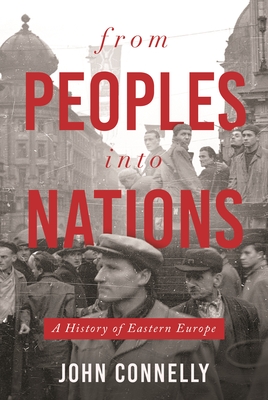Expedite your nonfiction book discovery process with Readara interviews, summaries and recommendations, Broaden your knowledge and gain insights from leading experts and scholars
In-depth, hour-long interviews with notable nonfiction authors, Gain new perspectives and ideas from the writer’s expertise and research, Valuable resource for readers and researchers
Optimize your book discovery process, Four-to eight-page summaries prepared by subject matter experts, Quickly review the book’s central messages and range of content
Books are handpicked covering a wide range of important categories and topics, Selected authors are subject experts, field professionals, or distinguished academics
Our editorial team includes books offering insights, unique views and researched-narratives in categories, Trade shows and book fairs, Book signings and in person author talks,Webinars and online events
Connect with editors and designers,Discover PR & marketing services providers, Source printers and related service providers

From Peoples Into Nations: A History of Eastern Europe
History > Eastern Europe - General
- Princeton University Press
- Hardcover
- 9780691167121
- 9.3 X 6.6 X 2.4 inches
- 3.4 pounds
- History > Eastern Europe - General
- (Single Author) Asian American
- English
Readara.com
Book Description
A sweeping narrative history of Eastern Europe from the late eighteenth century to today
In the 1780s, the Habsburg monarch Joseph II decreed that henceforth German would be the language of his realm. His intention was to forge a unified state from his vast and disparate possessions, but his action had the opposite effect, catalyzing the emergence of competing nationalisms among his Hungarian, Czech, and other subjects, who feared that their languages and cultures would be lost. In this sweeping narrative history of Eastern Europe since the late eighteenth century, John Connelly connects the stories of the region's diverse peoples, telling how, at a profound level, they have a shared understanding of the past.
An ancient history of invasion and migration made the region into a cultural landscape of extraordinary variety, a patchwork in which Slovaks, Bosnians, and countless others live shoulder to shoulder and where calls for national autonomy often have had bloody effects among the interwoven ethnicities. Connelly traces the rise of nationalism in Polish, Austro-Hungarian, and Ottoman lands; the creation of new states after the First World War and their later absorption by the Nazi Reich and the Soviet Bloc; the reemergence of democracy and separatist movements after the collapse of communism; and the recent surge of populist politics throughout the region.
Because of this common experience of upheaval, East Europeans are people with an acute feeling for the precariousness of history: they know that nations are not eternal, but come and go; sometimes they disappear. From Peoples into Nations tells their story.
Author Bio
John Connelly is the Sidney Hellman Ehrman Professor of History and director of the Institute of Slavic, East European, and Eurasian Studies at the University of California, Berkeley.
He is the author of Captive University: The Sovietization of East German, Czech, and Polish Higher Education and From Enemy to Brother: The Revolution in Catholic Teaching on the Jews. He lives in Kensington, California.
Education
PhD, 1994, Harvard University, History
MA, 1988, Harvard University, History
BSFS, 1982, Georgetown University, International Relations, magna cum laude
Research Interests
Modern East and Central European Political and Social History
Comparative Education
History of Nationalism and Racism
History of Catholicism
Academic Honors & Awards
Humanities Research Fellowship, University of California, Spring 2007
Membership, Institute for Advanced Study, Princeton, 2002-03
George L. Beer Prize of the American Historical Association, 2001 (for Captive University)
Spencer Fellow, 1996-98
German Marshall Fund Fellow, 1996-97
82nd Airborne Division Association Scholarship, Georgetown University, 1978-82
Professional Service
Co-director, UC Berkeley History Social Science Project (an outreach program for high schools), 2002-06
North American Editor, Contemporary European History, 2002-2010
Editorial Board, Zeitschrift für Ostmitteleuropaforschung, Marburg, 2001-present
Editorial Board, Slavic Review, 2007-present
Source: Princeton University Press and Department of History UC Berkley
Videos
No Videos
Community reviews
No Community reviews

